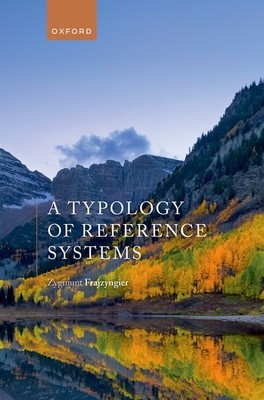
- We will send in 10–14 business days.
- Author: Zygmunt Frajzyngier
- Publisher: Oxford University Press, USA
- ISBN-10: 0192896431
- ISBN-13: 9780192896438
- Format: 16.3 x 22.9 x 4.8 cm, hardcover
- Language: English
- SAVE -10% with code: EXTRA
Reviews
Description
This volume offers a typology of reference systems across a range of typologically and genetically distinct languages, including English, Mandarin, non-literary varieties of Russian, Chadic languages, and a number of understudied Sino-Russian idiolects. The term 'reference system' designates all functions within the grammatical system of a given language that indicate whether and how the addressee(s) should identify the referents of participants in the proposition. In this book, Zygmunt Frajzyngier explores the major functional domains, subdomains, and individual functions that determine the identification of participants in a given language, and outlines which are the most and least frequently found crosslinguistically. The findings reveal that bare nouns, pronouns, demonstratives and determiners, and coding on the verb ('agreement') have different functions in different languages. The concluding chapters offer explanations for these differences and explore their implications
for the theory and methodology of syntactic analysis, for linguistic typology, and for syntactic theories.
EXTRA 10 % discount with code: EXTRA
The promotion ends in 19d.13:06:30
The discount code is valid when purchasing from 10 €. Discounts do not stack.
- Author: Zygmunt Frajzyngier
- Publisher: Oxford University Press, USA
- ISBN-10: 0192896431
- ISBN-13: 9780192896438
- Format: 16.3 x 22.9 x 4.8 cm, hardcover
- Language: English English
This volume offers a typology of reference systems across a range of typologically and genetically distinct languages, including English, Mandarin, non-literary varieties of Russian, Chadic languages, and a number of understudied Sino-Russian idiolects. The term 'reference system' designates all functions within the grammatical system of a given language that indicate whether and how the addressee(s) should identify the referents of participants in the proposition. In this book, Zygmunt Frajzyngier explores the major functional domains, subdomains, and individual functions that determine the identification of participants in a given language, and outlines which are the most and least frequently found crosslinguistically. The findings reveal that bare nouns, pronouns, demonstratives and determiners, and coding on the verb ('agreement') have different functions in different languages. The concluding chapters offer explanations for these differences and explore their implications
for the theory and methodology of syntactic analysis, for linguistic typology, and for syntactic theories.


Reviews